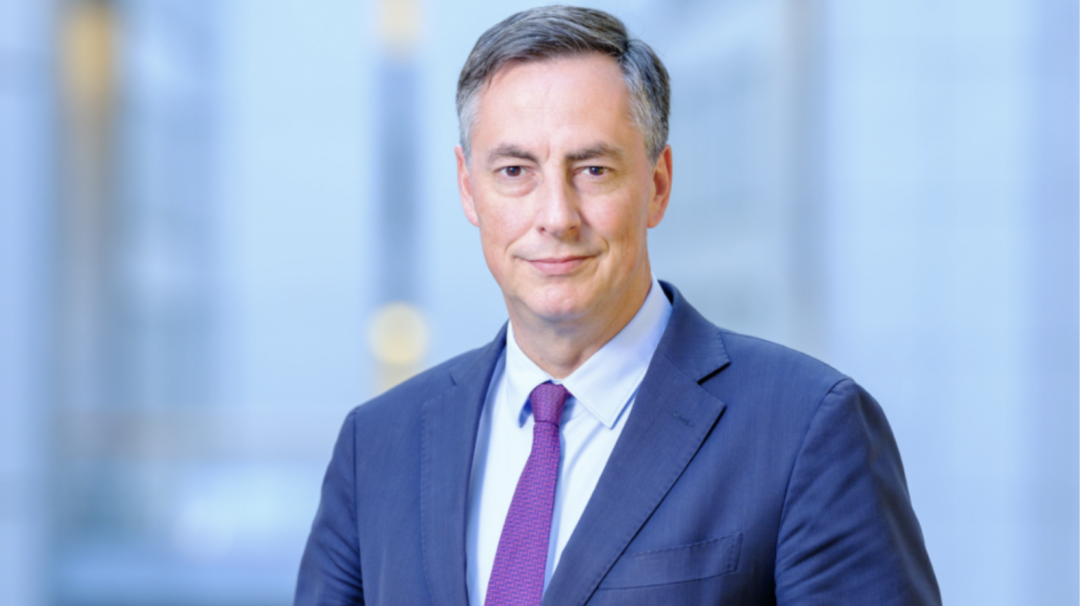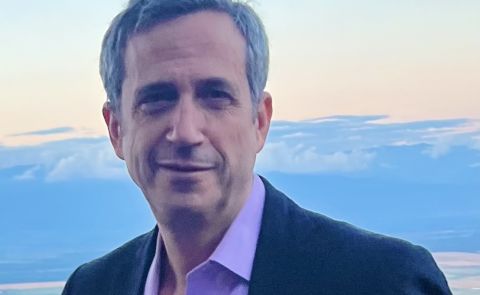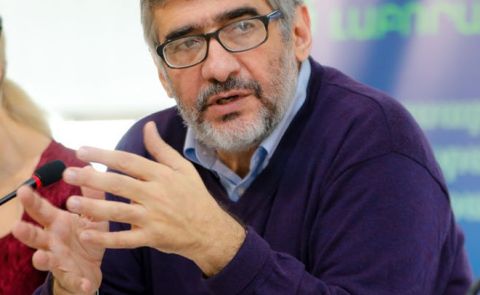
David McAllister: The EU Stands Ready to Facilitate Peace Talks

Europe is heading towards the European elections of June 2024 with more political polarisation than consensus on foreign and security policy. That includes how the EU engages with the Caucasus.
The big picture is that “the West” has been renegotiating priorities. Washington, Brussels, and each of the EU member states have different and not always aligned views on what constitutes a security threat in Europe. Often, the 27 are torn between those seeking accommodation and those seeking a more virulent standoff with Russia; those prioritising economic development and those urging the consolidation of defence capacity as the sole foundation of sustainable economic development; those who see this crisis as fuelling the argument towards decarbonisation; and those who suggest that “needs must” and want realism to prevail. The management of this polarisation is the challenge of the first self-pronounced “geopolitical” European Commission. This fractured set of priorities also informs engagement with the Caucasus.
The political debate is substantive as much as polarising, and the EU’s ambition sets the bar of the challenge even higher. The EU not only aspires to be a foreign and security actor but also to influence its security environment and play a leading role in the regulation of the global economy. Seeking to elicit a voice of authority on European “mainstream thinking” in a political environment edging towards the extreme, Caucasus Watch reached out to David McAllister, the Chair of the European Parliament’s Foreign Affairs Committee, Vice President of the European People’s Party, and a prominent member of the (German) Christian Democratic Union (CDU). We engage in an analysis of the conflict in Ukraine, the division of political ideologies, the implementation of economic penalties, the situation in the Caucasus region, negotiations between Armenia and Azerbaijan, and the process of expanding certain entities.
While Germany has accommodated the 2022 energy crisis, there is a looming question. As we head towards the European elections of June 2024, do you feel the CDU has articulated the vision of a new industrial policy that is not predicated on close ties with Russia?
Yes. The CDU has been clear that we need an energy concept that does not depend on Russian gas, oil, and coal. This, however, must not lead to further price hikes for German consumers, who already face one of the highest energy prices worldwide. Instead, alternative sources of energy need to become more affordable.
Because of a lack of input from the German federal government, the CDU has long proposed a comprehensive package of measures to achieve this endeavour. These include, for example, a reduction in electricity tax and energy tax to the European minimum level, an electricity tax rebate for energy-intensive industries, an extension of the Energy Tax Act, or a binding implementation of the possibility of subsidies for transmission grid fees.
Furthermore, we need to invest more in alternative energy sources. For this, the CDU wants to significantly expand renewable energies, consistently implement the hydrogen strategy, and advance CO2 capture technologies. In addition, it is a simple fact that we cannot do without nuclear power at this point.
Most countries in the Caucasus have seen double-digit economic growth during 2022. Lucrative re-exporting activity has received a lot of attention. However, the origins of these products are in Europe and the United States. The export of middle-sized tracks from Germany to Russia via the Caucasus has seen a fivefold increase. According to a plethora of reports, Intel, ADM, Texas Instruments, IBM, Dell, and other US high-technology products continue to make their way to Russia via Turkey or the Emirates. Is the West able to introduce credible sanctions in this global market?
The sanctions against Russia since the war of aggression against Ukraine are the most far-reaching and hard-hitting sanctions that the EU has ever introduced, with twelve successive packages adopted so far. Sanctions aim to strategically weaken the Russian economic and industrial base, in particular the military-industrial complex, and thereby undermine Russia’s ability to continue waging the war.
Ensuring that the sanctions are not circumvented has been an ongoing concern of the EU and its member states. As extensive sanctions are already in place, we have to look into the loopholes that Russia and its enablers are exploiting. The twelfth package of sanctions, adopted on 18 December 2023, introduces new measures in this respect, such as export restrictions and export controls on dual-use and advanced technological and industrial goods and technology.
The supply of military and dual-use goods leads to continued death and suffering in Ukraine. We are talking to our trade partners regarding export control mechanisms to ensure that such goods do not reach the Russian military industry. However, we also need to ensure control and tracing of exports that originate in the EU. How effective international sanctions are depends on the firmness, cohesion, cooperation, honesty, and respect for the commitments of the states that have adopted them.
EU member states should expand export controls to cover more categories of goods, to align export controls across jurisdictions, and to enforce measures consistently to close loopholes. The EU and its member states need to take particular measures to prevent advanced technology products that are being exported to non-EU countries from ending up in Russia and to constantly monitor developments to identify how sanction circumvention schemes work and to adapt the sanctions regimes accordingly.
Even if they are circumvented, sanctions have made it more difficult and more expensive to acquire key elements for the Russian war machine. However, sanctions alone will not end the war in Ukraine. We need to continue providing all the necessary support to Ukraine, in particular continued and sustained military assistance, as it defends itself against the Russian invasion and aims to regain full control of its entire territory within its internationally recognised borders.
We live through what has been called “the riot of the middle powers.” India is discussing accession to Russia’s Eurasian Economic Union, following in the footsteps of Iran and the UAE. Many states express their concern with the so-called “weaponization of financial regulation.” How confident can we be that the EU will remain a regulatory force able to set global market standards?
The increased global geopolitical competition is also affecting the economic and trade relations between different countries. The strength of the EU as a global actor is underpinned by our Single Market. It is the world’s largest internal market, accounting for 56 million European jobs and generating 25 % of EU gross domestic product.
The Single Market marked its 30th anniversary last year. It has undergone significant transformation during that time, and further strengthening of the Single Market is crucial for Europe's ability to tackle key challenges such as digital and green transition, artificial intelligence, climate change, or indeed the long-term geopolitical shifts in the world. We can only be strong on the global stage if we are strong and united inside the EU. For this, we need to continue addressing remaining fragmentation, mainly by introducing common EU policies to foster our global and internal competitiveness. The EU will only be able to make the most of its economic power if the Member States and EU institutions renew their commitment to the Single Market and take further concrete steps to make it stronger and more resilient.
We are also mindful of the increasingly globalised and interdependent world market. The EU is continuously engaging with its partners around the world, both bilaterally and in the relevant international fora. Our relations with partners around the world are based on cooperation rather than confrontation. The Single Market is a prime example of cooperation among European countries that lead to peace, stability, and growth. This success of the European Union is what other countries and regions are striving to emulate.
Baku has explicitly renounced the good offices of the EU in peace facilitation talks, calling into question the neutrality of Paris and Berlin. Negotiations now take place mostly in a bilateral framework. Does the EU have the levers required to remain a relevant force in the region?
The EU remains ready to facilitate the peace talks. Any progress achieved at a bilateral level is also a welcome development. Ultimately, an agreement on a just and lasting peace has to be reached by Armenia and Azerbaijan themselves. The EU has been long involved in supporting peace and security in the South Caucasus, not only as a facilitator and mediator in negotiations but also through tangible presence on the ground, first through the EU Monitoring Mission in Georgia and since last year through the EU Mission in Armenia. The EU has been consistent in calling for respect of the sovereignty and territorial integrity of all three countries of the region.
The EU’s multifaceted engagement in the South Caucasus demonstrates our commitment to the security, stability, and development of this strategically important region. Georgia has become an EU candidate country and is looking to continue the reform agenda linked to its European integration. All of the necessary conditions listed by the European Commission must be met before the country can continue on its path of European integration.
We also support ongoing democratic and economic reforms in Armenia and look to deepen our cooperation based on shared values and interests. The EU is a key economic partner for Azerbaijan, building in particular on the existing energy partnership.
The South Caucasus stands to benefit from developing connectivity between East and West, which is also a key interest for the EU. Unblocking communications within the region is a prerequisite for unlocking the full potential of growth and development as a transit hub. Negotiations between Armenia and Azerbaijan are ongoing, but the EU has made our position clear: the opening of regional connectivity links should be based on full respect of countries' sovereignty and jurisdiction, as well as on the principles of equality and reciprocity. Connectivity on this basis would foster peace, cooperation, and growth. This should be in everyone’s interests.
Historically, Georgia was a leading reformer in the Eastern Partnership. More recently, it was Hungary that championed Tbilisi’s candidacy for accession. Irrespective of whether one agrees with this direction of travel, ahead of the European elections, are you concerned that extreme political forces could frame the EU policy agenda?
Georgia was granted EU candidate status on the understanding that the relevant steps set out in the Commission recommendation of 8 November 2023 are taken. The decision was based on Georgia’s merit, taking into account the Commission’s report, which included a detailed assessment of Georgia’s fulfilment of the twelve priorities laid down in the Commission opinion on Georgia’s application for membership. In order to continue on its chosen path of European integration, Georgia will need to step up its reform efforts to strengthen democracy, rule of law, and respect for fundamental rights.
European policy making is based on compromises and consensus. There are often differences between member states or political camps, but ultimately, the European Union is able to make decisions and move forward. Our democratic political system is robust enough to withstand any changes that might come after the European elections.
Nevertheless, there are legitimate questions about the EU’s capacity to act and the adequacy and the efficiency of its decision-making procedures. As we are looking to expand beyond our current 27 members, unanimity that is applied in some key policy areas can become increasingly difficult to achieve. We need to prepare not only to broaden but also to deepen European integration in order to be able to function internally and externally.
Contributed by Ilya Roubanis
See Also


Peace or Capitulation? Shahverdyan on Armenia-Azerbaijan Agreement and the Nagorno-Karabakh Crisis

Ali Mousavi Khalkhali: Iran Will Avoid Conflict in the Caucasus

Aram Suren Hamparyan: Let’s Not End Up With Less Land and Less Peace

Lincoln Mitchell: The Caucasus in the Trump Era

